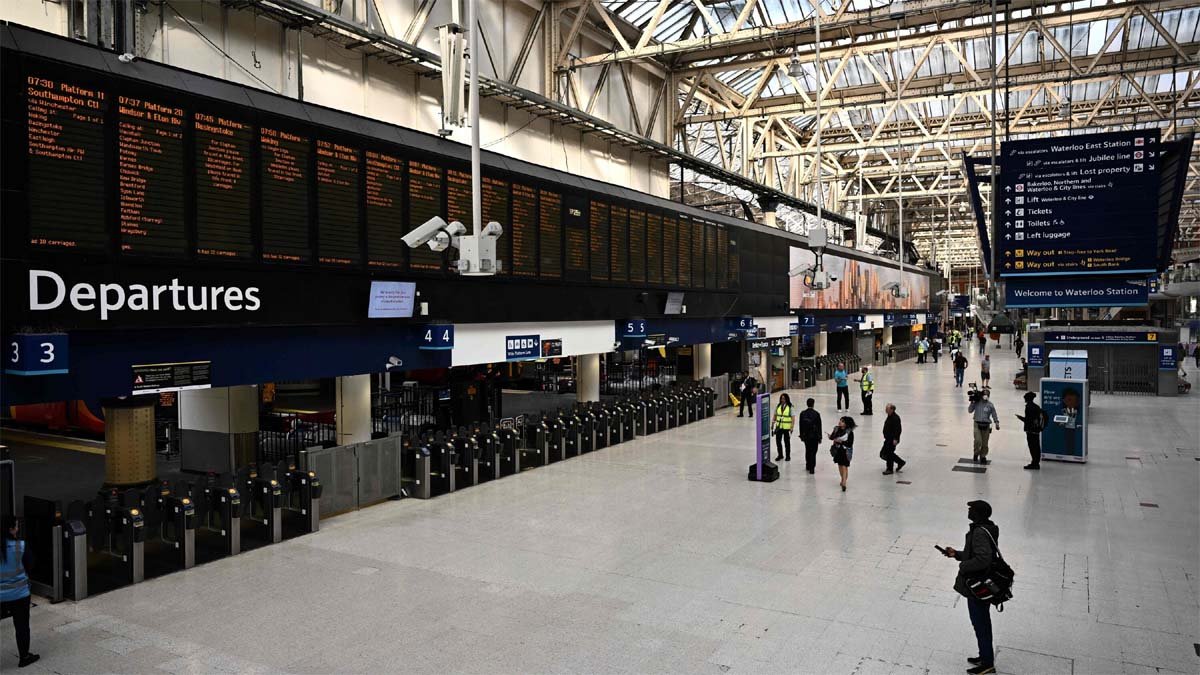UK Train Strike: Passengers in England are preparing for the first of three rail strikes this week due to an ongoing dispute over pay and conditions. The drivers’ union Aslef is set to embark on a 24-hour strike on Wednesday, with another strike planned for Saturday. As a result, no trains will run on networks including Avanti West Coast, Chiltern Railways, CrossCountry, East Midlands Railway, Great Northern, Southern, Southeastern, Thameslink, and Northern. In addition, approximately 20,000 onboard crew and station staff who are members of the RMT union plan to take industrial action on Friday, which will disrupt services but some trains will still run. The strikes are expected to impact parents and children on the half-term break and passengers traveling to major events on Saturday, such as the FA Cup final and a Beyoncé concert.
The rail strikes have been scheduled for several days in May and June, including Wednesday, May 31 (Aslef), Friday, June 2 (RMT), and Saturday, June 3, the day of the FA Cup final (Aslef). Aslef has also called for an overtime ban at 15 train operating companies on June 1, which may result in some cancellations.
Several rail operators will experience disrupted services during the strikes, including Avanti West Coast, CrossCountry, Great Northern, Great Western Railway, LNER, Northern Rail, Southeastern (on Aslef strike days only), Southern (including Gatwick Express), Thameslink, and TransPennine Express, among others. While thousands of trains are expected to be canceled, some operators will run a skeleton service on core routes. Passengers are advised to check with the respective operators before traveling on strike days.
Why train drivers strike in uk
The rail workers’ unions are demanding pay offers that reflect the rising cost of living, while the rail industry faces financial pressures caused by the pandemic. The average salary of rail workers in 2022 was £45,919, according to the Office for National Statistics (ONS). However, the dispute primarily involves train drivers, who have not received a pay rise since their last agreement ended in 2019. The Rail Delivery Group (RDG) offered a backdated pay rise of 5% for 2022, which was rejected by the unions. Aslef rejected a two-year offer with a backdated pay rise of 4% for 2022 and a 4% increase this year.
In terms of notice, unions are required to provide a certain amount of notice before going on strike, but the specific timeframes may vary depending on the circumstances and applicable laws and regulations.
Please note that the information provided is based on the given context, and it’s advisable to refer to official sources and the respective train operators for the most up-to-date and accurate information on the strikes and their impact.
More Trending News:
Why Serbs attack NATO peacekeepers in Kosovo?
Is Nvidia Stock Worth Buying Now?https://loanvani.com/is-nvidia-stock-worth-buying-now/

